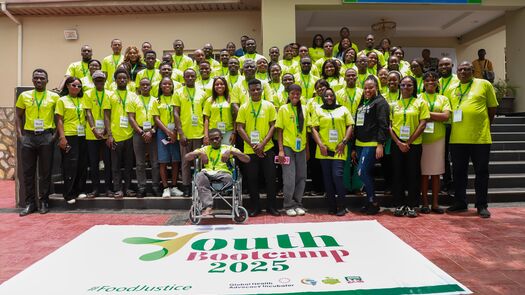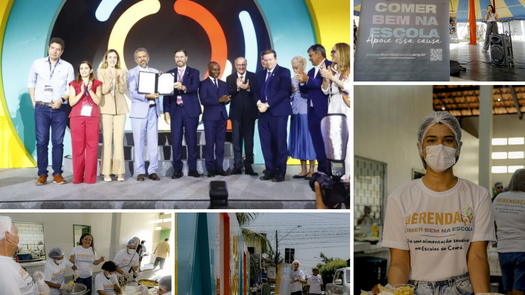November 25, 2025
On November 17, the Global Health Advocacy Incubator (GHAI) released the report “Facing Two Pandemics: How Big Food Undermined Public Health in the Era of COVID-19.” This report details how multinational food and beverage companies (“Big Food”)– such as Coca-Cola, McDonald’s, Nestlé, and PepsiCo – seized the COVID-19 pandemic as a unique opportunity to aggressively market their unhealthy, ultra-processed products to especially vulnerable populations while directly and indirectly influencing healthy food policies.

The report draws from nearly 300 examples collected in 18 countries between March and July 2020 to reveal how the lack of healthy food regulations worldwide enabled Big Food to use the global crisis to polish their public images while undermining public health.
Some examples of industry activity include:
- Donating ultra-processed food and drinks to vulnerable populations:
- In Brazil, Nestlé, Bauducco and Danone donated more than 400 tons of foods, including ultra-processed foods that are deemed unhealthy per the Brazilian Dietary Guidelines.
- In South Africa, Coca-Cola partnered with a non-profit to donate 532 soft drinks to vulnerable families in townships and multiple healthcare centers such as the Obesity Care Centre (ironically).
- Touting unhealthy, ultra-processed foods and drinks as essential, safe products and immune boosters:
- Yogurt companies in Japan and Colombia promoted their yogurts as immune system boosters.
- In Colombia, PepsiCo requested government permission to maintain production during the lockdown, portraying their products as essential components of the family food basket.
- In Brazil, the industry group ILSI (International Life Science Institute) highlights that processed foods are allies in the fight against COVID-19 touting their high safety levels that reduce the risk of chemical and physical contamination.
- Marketing of junk food on educational platforms for kids:
- In the US, Lunchables, Frosted Flakes and McDonald’s Happy Meals advertised on ABCya’s online learning platform.
- Appealing to consumers’ vulnerability during the lockdown to promote junk food as an elixir for tough times:
- In Japan, Coca-Cola encouraged people to exercise at home while in quarantine through online exercise videos, pledging to donate up to 1 million drinks to app users who track 1,000 steps a day.
- In Brazil, McDonalds posted videos on twitter showing kids pressuring their parents to go to McDonalds during the quarantine to safely pick up food through the contactless drive-thru.
Ultra-processed food and drinks, defined as industrially manufactured ready-to-heat-and-eat foods, are major contributors to rising rates of obesity, cardiovascular disease, and diet-related diseases. People with these diseases are at greater risk of experiencing complications from COVID-19 than people without these conditions. This makes Big Food’s activities especially problematic – countries with high rates of obesity and diet-related diseases faced the COVID-19 pandemic with a huge liability: a vulnerable population more susceptible to complications, and even death, from COVID-19.
The very companies who had already contributed to rising rates of obesity and diet-related diseases exploited COVID-19 to position themselves and their products as “essential,” while also, directly and indirectly, influencing public health policy.
Examples of Big Food influencing public health policy include:
- In Mexico, the food and beverage industry used the COVID-19 as an excuse to postpone implementing a new front-of-package warning label.
- In Colombia, beverage companies – including PepsiCo – used their ties with the national government to sink a proposed tax on sugary beverages.
Big Food’s ability to use this pandemic to their advantage underscores the urgent need for evidence-based healthy food policies worldwide to address diet-related diseases and limit Big Food’s interference in policymaking. These types of policies include:
- Front of package labels warning of high content of sugar, fats and sodium;
- School food environments free of junk food and sugary drink offerings and promotions;
- Comprehensive bans of advertising, promotion and sponsorship of unhealthy foods and drinks, particularly those aimed at children and adolescents;
- Taxes on junk food and sugary drinks;
- Legal frameworks to ensure transparency related to conflict of interest in policymaking; and
- Protocols to regular food assistance programs and food donations during health emergencies.
GHAI’s report urges government and civil society organizations to take action to implement these policies. Each of these policies could have helped individuals make healthier food choices during the pandemic and are even more important today as countries recover from the pandemic and work to ensure a healthier future.
More information about the work of GHAI’s Food Policy Program can be found here.



